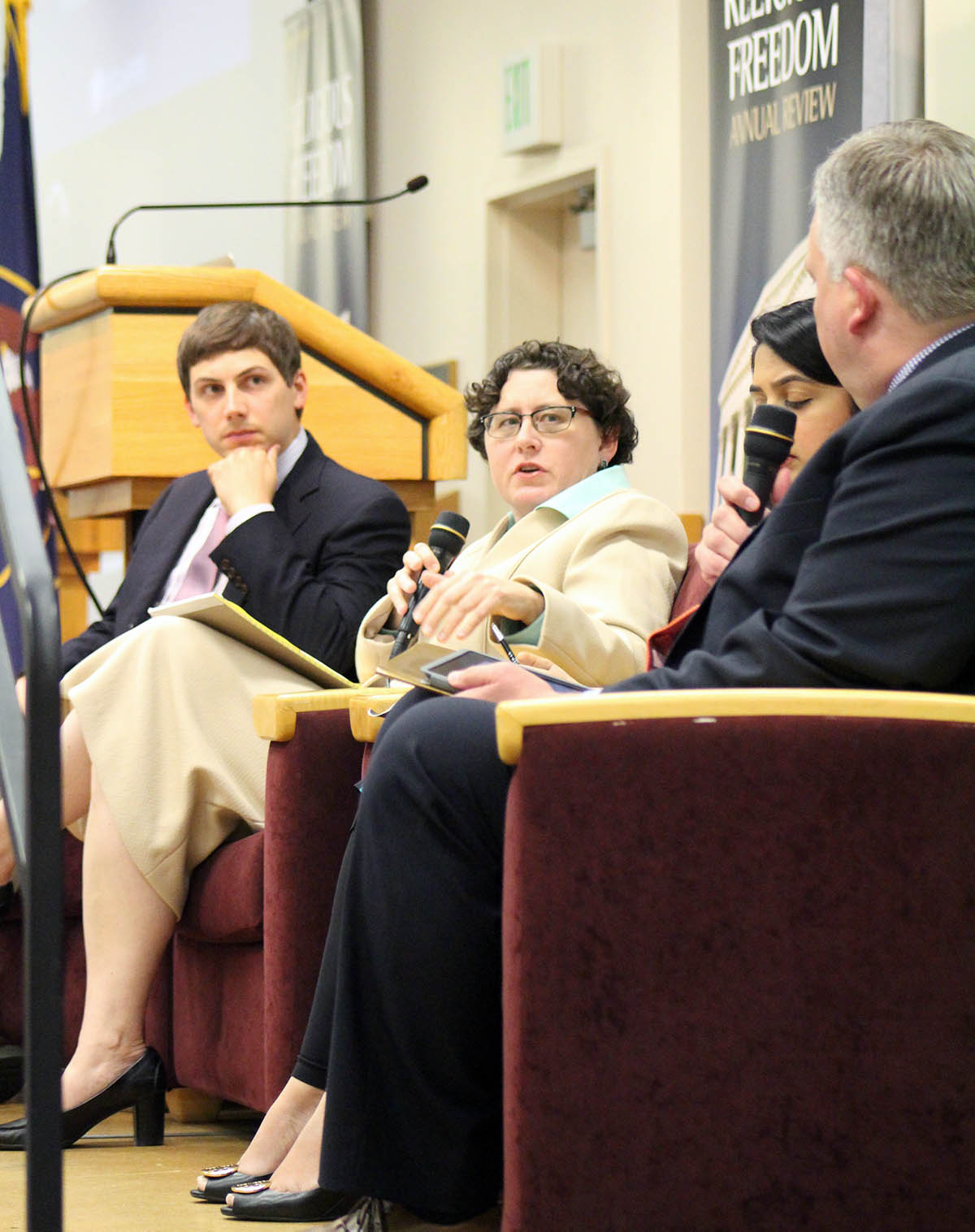General Discussion Session: A Conversation on the Changing Face of Religion in American Public Life – Cox, Uddin, & Moreland

by Justin Miller, 2017 ICLRS Student Fellow
ICLRS Associate Director Elizabeth Clark moderated a session with panelists Daniel Cox, Asma T. Uddin, and Michael P. Moreland.
Daniel Cox, Director of Research at the Public Religion Research Institute, began the panel by presenting some of his research on religious change and decline. In recent years, there has been a rather precipitous decline in those identifying as Protestants while Catholics have remained relatively stable and the unaffiliated have steadily grown. Much of the decline has been in White Protestants while African-American Protestants have remained stable and Latino Protestants have grown. White Catholics have also steeply declined while Latino Catholics have greatly increased. The unaffiliated have grown from 5% in 1972 to 25% in 2016 which leads Cox to believe that this is not merely a case of young people always being less religious than the previous generation.
The reason most people give for leaving their religion is because they stopped believing. This occurs before their 18th birthday in 62% of cases. However, most report that their last experience at a religious service was positive, and only 7% of the unaffiliated are looking for a religious group right for them.
The secularization of America is likely to continue accelerating because, whereas in past decades it was uncommon for both parents to be secular, secular couples are becoming more common. Even among White Evangelical Protestants, there is now a growing perception that the United States is no longer a Christian nation, even if it once was.
Michael Moreland, Mary Ann Remick Senior Visiting Fellow, Notre Dame Center for Ethics and Culture, and Professor of Law at Villanova University, commented that the “nones” are not the previous generations’ atheists, but rather the disinterested. Moreland highlighted that religion requires a formative cultural and/or familial environment to flourish. He also noted that there is a tension between traditional White American Catholics and the rise of Latino American Catholics.
This highlighted a deeper divide in the political parties along religion lines. The Democrats face an inner conflict in trying to create a unified message for African-American Protestants, Latino Catholics, and the unaffiliated. Likewise, the Republicans face the challenge of appealing to the traditional Religious Right in addition to the unaffiliated.
Asma Uddin, Director of Strategy at the Center for Islam and Religious Freedom, contributed that this disinterest is rooted in a misunderstanding about religion and refusing to tie it to either strong positives or strong negatives. For example, older generations might view global terrorism in a religious context, but younger generations are more open to diversity, and do not view religion as either a positive or a negative.
The panel then addressed a question about whether the Millennials’ defense of individual LGBTQ rights could rebound to a stronger defense of individual religious rights. Moreland emphasized that, for now, much of the animus against religion is directed at institutions and not yet at individuals. There is still some sympathy for the individual in her belief, but not at an institutional level. This is because the disaffiliated are not just disaffiliated from religion, but increasingly from most institutions. Uddin noted that it is important for believers to reemphasize what a “duty” means to them because among the disaffiliated, “duty” is more or less a foreign concept.